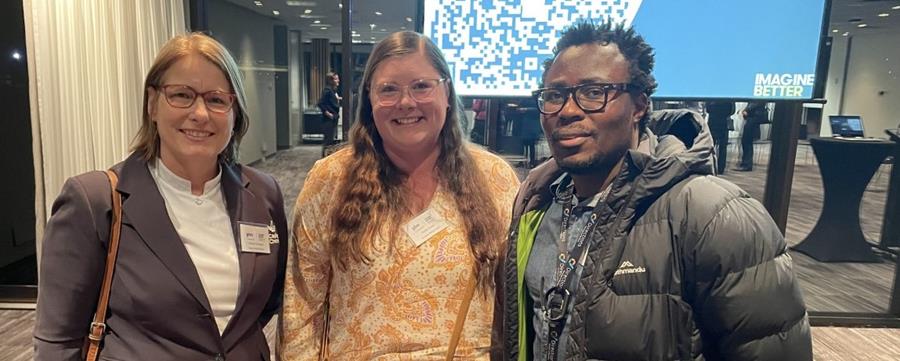Since 2019, CHN, ACT’s PHN has funded a total of eight ACT general practices to employ a part-time non-dispensing Pharmacist. Through the Pharmacists in General Practice Program, part-time Pharmacists worked within these practices. Pharmacists conducted a range of clinical and administrative activities including patient-facing activities, supporting GPs with prescribing and assisting practices with quality improvement activities. The program originated from a two-year pilot in three local practices to demonstrate the benefits of utilising non-dispensing Pharmacists in general practice in 2016.
The University of Canberra’s evaluation of the program showed the value of a Pharmacist in the general practice team and the timesaving opportunity provided to the GPs in the practice. It found that for every five hours that a Pharmacist is employed that approximately one hour of time is save for a GP e.g. Part-time Pharmacists (15 hours per week) may relieve three hours of GPs’ time per week so that a GP could undertake other clinical activities.
The eight practices involved in the program were Althea Wellness Centre/Directions, Conder Medical and Dental Centre, East Canberra General Practice, Florey Medical Centre, Gungahlin Medical Practice, Health Plus General Practice, Interchange Health Co-operative and Ochre Health Medical Centre Bruce. The three practices that participated in the original pilot were Isabella Plains Medical Centre, National Health Co-operative and YourGP@Crace/YourGP@Lyneham.
Patients reported a high level of satisfaction in the Pharmacists and their activities in general practice. Two of the general practices involved have retained their Pharmacist even after the CHN funds have been exhausted. Positive feedback has been received from GPs and Practice Nurses involved in the program.
Testimonials
“Being physically co-located makes that interaction easier and more natural. I think that it’s probably the way of the future as it’s good for patients to have a number of the health care providers that they would normally see in the same location. It makes interaction between those health care providers easier and I think the outcome is better patient care,” said a GP.
“The Pharmacist added to our staff very nicely in that they were able to assist and provide holistic care for our patients. When they had multiple medications or medication questions, they were available for us to refer to. The Pharmacist just completed the care that we were able to offer our patient,” said a Practice Nurse.
“Pharmacy is a natural part of the team. With the incredible complexity of the medications we’re dealing with… you can’t possibly have that knowledge in your head. Having that person in the role of Pharmacist is absolutely critical as part of the team,” said another GP.

CHN Annual Report 2020-21 - Contents (click to expand)
Contents
- From the Chair and CEO
- COVID-19 response
- Priority areas
- Workforce
- Care across the continuum
- Vulnerable groups
- Mental health
- Regional Mental Health and Suicide Prevention Plan
- Borderline Personality Disorder: Dialectical Behaviour Therapy for Emerging Adults
- Mental health services for young people: headspace
- Mental health services for the LGBTIQA+ population: Inclusive Pathways
- Mental health support: Next Step
- Psychosocial support for people with severe mental illness
- National Psychosocial Support Transition and Continuity of Support
- Therapeutic service for children: Stepping Stones
- Support following a suicide attempt: The Way Back Support Service
- Aged Care
- Aboriginal and Torres Strait Islander health
- Digital health
- Alcohol and Other Drugs
- Chronic disease management
- Financial Statements
